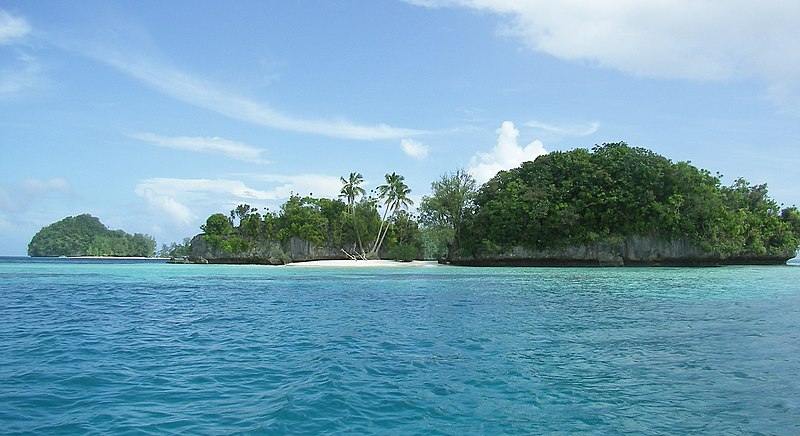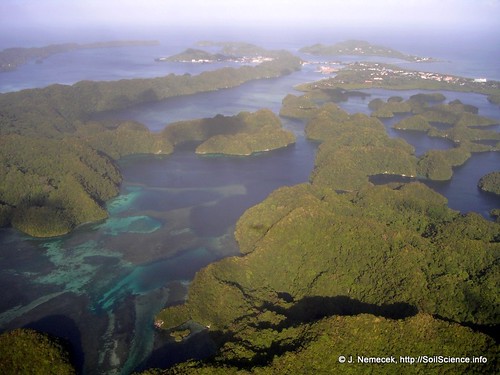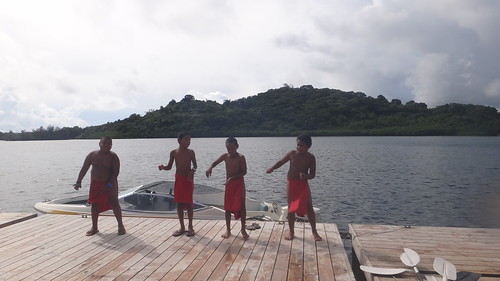Difference between revisions of "Adopting from Palau"
| Line 14: | Line 14: | ||
{{#eimage:https://farm8.staticflickr.com/7262/7648128318_4fcff0d4a1.jpg|410x579px|thumb|'''Children in Palau.'''<BR/>Source: flickr.com.}} | {{#eimage:https://farm8.staticflickr.com/7262/7648128318_4fcff0d4a1.jpg|410x579px|thumb|'''Children in Palau.'''<BR/>Source: flickr.com.}} | ||
| − | |||
{{#eimage:http://upload.wikimedia.org/wikipedia/commons/thumb/b/b6/Koror-palau-typical-weather20071219.jpg/800px-Koror-palau-typical-weather20071219.jpg|410x579px|thumb|'''Typical weather on Koror, Republic of Palau.'''<BR/>Source: Wikipedia.org.}} | {{#eimage:http://upload.wikimedia.org/wikipedia/commons/thumb/b/b6/Koror-palau-typical-weather20071219.jpg/800px-Koror-palau-typical-weather20071219.jpg|410x579px|thumb|'''Typical weather on Koror, Republic of Palau.'''<BR/>Source: Wikipedia.org.}} | ||
{{#eimage:http://upload.wikimedia.org/wikipedia/commons/thumb/4/4b/Capitol-complex-melekeok-palau20071220.jpg/800px-Capitol-complex-melekeok-palau20071220.jpg|410x579px|thumb|'''The capitol complex, in the settlement of Ngerulmud, Palau.'''<BR/>Source: Wikipedia.org.}} | {{#eimage:http://upload.wikimedia.org/wikipedia/commons/thumb/4/4b/Capitol-complex-melekeok-palau20071220.jpg/800px-Capitol-complex-melekeok-palau20071220.jpg|410x579px|thumb|'''The capitol complex, in the settlement of Ngerulmud, Palau.'''<BR/>Source: Wikipedia.org.}} | ||
| + | |||
| + | '''Notice: As of July 14, 2014, all individuals and agencies facilitating international adoptions must be in compliance with the Intercountry [[Universal Accreditation Act]].''' | ||
=Hague Convention Information= | =Hague Convention Information= | ||
Revision as of 22:10, 29 April 2014
Notice: As of July 14, 2014, all individuals and agencies facilitating international adoptions must be in compliance with the Intercountry Universal Accreditation Act.
Contents
Hague Convention Information
Palau is not party to the Hague Convention on Protection of Children and Co-operation in Respect of Intercountry Adoption (Hague Adoption Convention). Intercountry adoptions of children from non-Hague countries are processed in accordance with 8 Code of Federal Regulations, Section 204.3 as it relates to orphans as defined under the Immigration and Nationality Act, Section 101(b)(1)(F).
Although the “Compact of Free Association” between Palau and the United States permits Palauan citizens to travel to the United States for some temporary purposes without a U.S. visa, this provision is NOT applicable to adopted children who will reside permanently with American families in the United States. Prospective adoptive parents of Palauan children must go through the appropriate Palauan adoption procedures as well as the relevant U.S. immigration procedures. Adopted Palauan children who enter the United States without a visa will later have difficulties adjusting their U.S. immigration status and, eventually, acquiring U.S. citizenship.
U.S. IMMIGRATION REQUIREMENTS FOR INTERCOUNTRY ADOPTIONS
To bring an adopted child to the United States from Palau, you must meet eligibility and suitability requirements. The U.S. Department of Homeland Security, U.S. Citizenship and Immigration Services (USCIS) determines who can adopt under U.S. immigration law.
Additionally, a child must meet the definition of orphan under U.S. immigration law in order to be eligible to immigrate to the United States on an IR-3 or IR-4 immigrant visa.
Who Can Adopt
In addition to U.S. immigration requirements, you must also meet the following requirements in order to adopt a child from Palau:
Residency
The Palauan government has no specific requirement or policy as regards the residency of foreign prospective adoptive parents.
Age of Adopting Parents
There are no age requirements for adoptive parents, as long as Palauan authorities deem the prospective adoptive parents "suitable."
Marriage
Under Palauan law, both married couples and single individuals may adopt Palauan children if the Palauan authorities deem the prospective adoptive parents "suitable." Foreign citizens who are married to Palauan citizens may also adopt their Palauan stepchildren.
Income
There is no minimum income requirement for adoptive parents, as long as Palauan authorities deem the prospective adoptive parents "suitable."
Other
There are no other specific requirements for adoptive parents, as long as Palauan authorities deem the prospective adoptive parents "suitable." There is no requirement that the adoptive parents have a background check, home visit, or provide police records to the authorities.
Who Can Be Adopted
Palau has specific requirements that a child must meet in order to be eligible for adoption. You cannot adopt a child in Palau unless he or she meets the requirements outlined below.
In addition to these requirements, a child must meet the definition of an orphan under U.S. law for you to bring him or her back to the United States. Learn more about these U.S. requirements.
ELIGIBILITY REQUIREMENTS:
- Relinquishment Requirements: The relinquishing parent(s) must provide signed consent.
- Abandonment Requirements: A child is considered abandoned if a period of six months passes without contact with the biological parent(s). The adopting parents must show they have made a good faith effort to contact the biological parent(s).
- Age Requirements: A child over the age of 12 years old must consent to being adopted.
- Sibling Requirements: There are no requirements regarding the adoption of siblings.
- Requirements for Special Needs or Medical Conditions: There are no requirements regarding care for special needs or medical conditions.
- Waiting Period: There is no mandated waiting period.
Caution: Prospective adoptive parents should be aware that not all children in orphanages or children's homes are adoptable. In many countries, birth parents place their child(ren) temporarily in an orphanage or children's home due to financial or other hardship, intending that the child return home when this becomes possible. In such cases, the birth parent(s) have rarely relinquished their parental rights or consented to their child(ren)'s adoption.
How to Adopt
Adoption Authority
Palauan Adoption Authority
There is no specifically designated Palauan authority or agency overseeing adoption procedures. Americans considering adoption from Palau should begin by contacting a Palauan attorney to assist them in the judicial process.
The Process
The process for adopting a child from Palau generally includes the following steps:
- Choose an Adoption Service Provider
- Apply to be Found Eligible to Adopt
- Be Matched with a Child
- Adopt the Child (or Gain Legal Custody) in Palau
- Apply for the Child to be Found Eligible for Adoption
- Bring Your Child Home
1. Choose an Adoption Service Provider
The first step in adopting a child from Palau is usually to select a licensed agency in the United States that can help with your adoption. Adoption service providers must be licensed by the U.S. state in which they operate. Learn more about choosing the right adoption service provider.
There are no adoption agencies located in or assisting with adoptions in Palau. The U.S. Embassy in Koror strongly recommends that prospective adoptive parents residing outside of Palau hire a Palauan lawyer
2. Apply to be Found Eligible to Adopt
In order to adopt a child from Palau, you will need to meet the requirements of the Government of Palau and U.S. immigration law. Prospective adoptive parents must petition the court for adoption. There is no separate authority that supervises adoption.
To meet U.S. immigration requirements, you may also file an I-600A, Application for Advance Processing of an Orphan Petition with U.S. Department of Homeland Security’s U.S. Citizenship and Immigration Services to be found eligible and suitable to adopt.
3. Be Matched with a Child
Palau does not have any adoption service providers or agencies, nor does it have the equivalent of a Department of Social Welfare. Prospective adoptive parents must locate a child for adoption on their own. . Each family must decide for itself whether or not it will be able to meet the needs of and provide a permanent home for a particular child.
The child must be eligible to be adopted according to Palau’s requirements, as described in the Who Can Be Adopted section. The child must also meet the definition of orphan under U.S. immigration law.
4. Adopt the Child (or Gain Legal Custody) in Palau
The process for finalizing the adoption (or gaining legal custody) in Palau generally includes the following:
- Role of Adoption Authority: There is no centralized adoption authority in Palau. Adoptions are adjudicated by the courts.
- Role of the Court: Prospective adoptive parents must petition the Court of Common Pleas, under the Palau Supreme Court, for adoption. There is no separate authority that supervises adoption. Palauan adoption procedures are very straightforward. The prospective adoptive parents petition the court for adoption, and if the court grants the adoption, the child’s name can be changed and the child may leave the country after receiving a U.S. immigrant visa in a Palauan passport. Despite the apparent simplicity of this process, however, the U.S. Embassy in Koror strongly recommends that prospective adoptive parents residing outside of Palau hire a Palauan lawyer who will be able to investigate and provide to the court any and all relevant information on their background, living environment, and financial status.
- Role of Adoption Agencies: There are no adoption agencies in Palau.
- Adoption Application: Prospective adoptive parents must petition the court for adoption (see above).
- Time Frame: The U.S. Embassy in Koror, Palau has indicated that Palauan adoptions generally take from one to two months to complete.
- Adoption Fees: Prospective adoptive parents should expect to pay a court filing fee in Palau of 50 USD. Prospective adoptive parents who hire a local attorney to assist in the adoption process will also have to pay attorneys’ fees, which vary.
- Documents Required: Prospective adoptive parents must present the child’s original Palauan birth certificate as well as a letter of relinquishment from the child’s birth parents to the Court of Common Pleas. NOTE: Additional documents may be requested.
- Authentication of Documents: You may be asked to provide proof that a document from the United States is authentic. If so, the Department of State, Authentications Office may be able to assist.
5. Apply for the Child to be Found Eligible for Adoption
After you finalize the adoption (or gain legal custody) in Palau, the Department of Homeland Security, U.S. Citizenship and Immigration Services must determine whether the child meets the definition of orphan under U.S. immigration law. You will need to file a Form I-600, Petition to Classify Orphan as an Immediate Relative.
6. Bring Your Child Home
Now that your adoption is complete (or you have obtained legal custody of the child), there are a few more steps to take before you can head home. Specifically, you need to apply for several documents for your child before he or she can travel to the United States:
- 1. Birth Certificate
Palau does not issue a new birth certificate effecting the name change after adoption. The court order confirming adoption serves as the sole evidence for changing the adopted child's name.
- 2. Palauan Passport
Your child is not yet a U.S. citizen, so he/she will need a travel document or Passport from Palau. Application for a Palauan passport must be made in person to the Palauan Ministry of State. The fee for a Palauan passport is 50 USD. The normal processing time is one week, though expedited services may be request.
- 3. U.S. Immigrant Visa
After you obtain the new birth certificate and passport for your child and you have filed Form I-600, Petition to Classify Orphan as an Immediate Relative, you then need to apply for a U.S. immigrant visa for your child from the U.S. Embassy in Manila, Philippines. This immigrant visa allows your child to travel home with you. As part of this process, the Consular Officer must be provided the Panel Physician’s medical report on the child.
The U.S. Embassy in Koror does not issue immigrant visas. The closest U.S. Embassy to Palau that processes immigrant visas is in Manila, Philippines. You can find instructions for applying for an immigrant visa on the U.S. Embassy in the Philippines’ website.
Adoptive or prospective adoptive parents of Palauan children should contact the U.S. Embassy in Manila as soon as they have identified a Palauan child to adopt, or once they have completed all required Palauan adoption procedures. Families should not travel to Manila prior to contacting the U.S. Embassy in Manila, in the event that the embassy requires additional documentation that the parents must take with them from either Palau or the United States.
NOTE: Visa issuance after the final interview generally takes at least 24 hours. It is not normally possible to provide the visa to adoptive parents on the same day as the immigrant visa interview. Adoptive parents should verify current processing times with the U.S. Embassy in Manila before making final travel arrangements.
Child Citizenship Act
For adoptions finalized abroad: The Child Citizenship Act of 2000 allows your new child to acquire American citizenship automatically when he or she enters the United States as lawful permanent residents.
For adoptions finalized in the United States: The Child Citizenship Act of 2000 allows your new child to acquire American citizenship automatically when the court in the United States issues the final adoption decree.
Please be aware that if your child did not qualify to become a citizen upon entry to the United States, it is very important that you take the steps necessary so that your child does qualify as soon as possible. Failure to obtain citizenship for your child can impact many areas of his/her life including family travel, eligibility for education and education grants, and voting.
Read more about the Child Citizenship Act of 2000.
Traveling Abroad
Applying for Your U.S. Passport
A valid U.S. passport is required to enter and leave Palau. Only the U.S. Department of State has the authority to grant, issue, or verify U.S. passports. Getting or renewing a passport is easy. The Passport Application Wizard will help you determine which passport form you need, help you to complete the form online, estimate your payment, and generate the form for you to print-all in one place.
Obtaining Your Visa
In addition to a U.S. passport, you also need to obtain a visa. A visa is an official document issued by a foreign country that formally allows you to visit. Where required, visas are attached to your passport and allow you to enter a foreign nation. To find information about obtaining a visa for Palau, see the Department of State's Country Specific Information.
Staying Safe on Your Trip
Before you travel, it's always a good practice to investigate the local conditions, laws, political landscape, and culture of the country. The State Department is a good place to start. The Department of State provides Country Specific Information for every country of the world about various issues, including the health conditions, crime, unusual currency or entry requirements, and any areas of instability.
Staying in Touch on Your Trip
When traveling during the adoption process, we encourage you to register your trip with the Department of State. Travel registration makes it possible to contact you if necessary. Whether there's a family emergency in the United States, or a crisis in Palau, registration assists the U.S. Embassy or Consulate in reaching you. Registration is free and can be done online.
After Adoption
What resources are available to assist families after the adoption?
Many adoptive parents find it important to find support after the adoption. Take advantage of all the resources available to your family -- whether it's another adoptive family, a support group, an advocacy organization, or your religious or community services.
Here are some good places to start your support group search:
Child Welfare Information Gateway
North American Council on Adoptable Children
Adoption Services Support Group for Adopting Persons
Contact Information
U.S. Embassy in Palau
The U.S. Embassy in Palau is located in Airai. There is no street address. Tel: (680) 587-2920 Fax: (680) 587-2911 Email: usembassykoror@palaunet.com Internet: U.S. Embassy Palau
Mailing Address:
Embassy of the United States of America P.O. Box 6028 Omsangel/Beklelachieb Palau 96940
U.S. Embassy in the Philippines
Embassy of the United States of America 1201 Roxas Blvd. Ermita, Metro Manila – 1000 Philippines Tel: (632) 982-5555 or (632) 902-8930 Email: IVManilaAdoptions@state.gov Internet: U.S. Embassy Philippines
Embassy of Palau
Embassy of Palau 1701 Pennsylvania Avenue, N.W. Suite 300 Washington, D.C. 20006 Tel: (202) 452-6814 Fax: (202) 452-6281 Email: infor@palauembassy.com Internet: Embassy of Palau
Office of Children’s Issues
U.S. Department of State CA/OCS/CI SA-17, 9th Floor Washington, DC 20522-1709 Tel: 1-888-407-4747 Email: AskCI@state.gov Internet: U.S. Department of State
U.S. Citizenship and Immigration Services (USCIS)
For questions about immigration procedures: National Customer Service Center (NCSC) Tel: 1-800-375-5283 (TTY 1-800-767-1833) Internet: USCIS
For questions about filing a Form I-600A or I-600 petition:
National Benefits Center Tel: 1-877-424-8374 (toll free); 1-816-251-2770 (local) Email: NBC.Adoptions@DHS.gov
SOURCE
Intercountry Adoption, Bureau of Consular Affairs. U.S. Department of State Country Information[1]









